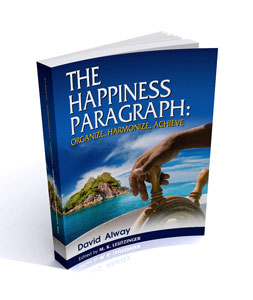What is happiness?
Happiness means different things to different people. While “happiness” always refers to a very positive, life-affirming emotion, it can be used in either a short-term or a long-term sense. Another word for the short-term meaning of happiness is joy. You may enjoy (feel joy when) hearing a particular song, drinking some wine, seeing a person you love, or engaging in numerous other such activities. These emotions are rather short lived. They do not involve a long-term perspective.
When I speak of real, long-term happiness, however, I am referring to not just an emotion, but a type of emotional summation. Happiness, to me, involves the summation of thoughts and feelings toward your life as a whole—the kind of thought process that would be involved if you asked yourself the following questions: How is my life going? Am I achieving the goals I set out for myself? Do I feel guilty, fearful, or disappointed about aspects of my life, or do I feel satisfaction, pride, and excitement? Do I feel in control of my life, or pushed around by forces that I cannot control? Am I looking forward to my future? How do I feel about myself, my accomplishments, and the type of person I am?
In my opinion, the happier the person, the more that person will say: My life is going well. I am choosing goals well and achieving them. I feel good about the various aspects of my life, not guilty or fearful. I feel in control of my life, in general. I look forward to my future and I also feel positive about past accomplishments. I am generally a person of good character and I feel I deserve to succeed in life.
To sum up the result of all of these questions into an overarching definition of happiness, I would say: a person is happy to the degree that his summation evaluation of his entire life results in a positive emotion. The more positive the evaluation, the more happy a person is with his life. Another way of putting this is: happiness is a person’s overall degree of satisfaction with his entire life. It includes a person’s assessment of his past actions, his present self (namely, character and self-esteem), and his expected future.
In its long-term perspective, this definition of happiness has something in common with Aristotle’s views on happiness (in Greek, Eudemonia), in which he concluded that in order to judge a man’s level of happiness, you must observe him for a long period of time, following his achievements, his failures, and how he endures them. The philosopher Ayn Rand also viewed happiness from a long-term perspective, thinking of it as the cumulative effect of living your life rationally.
